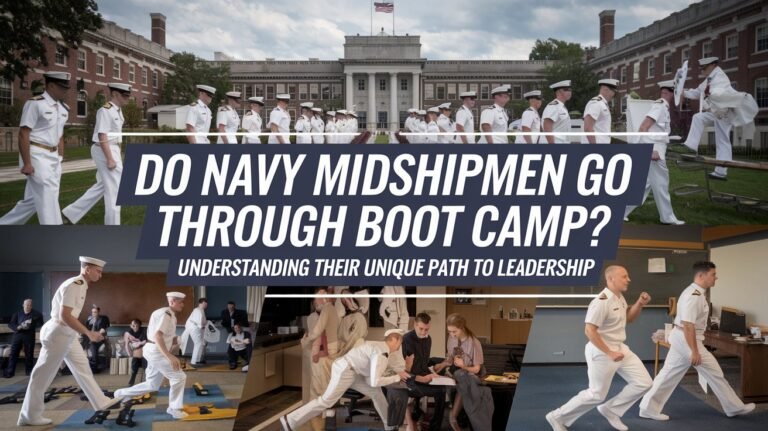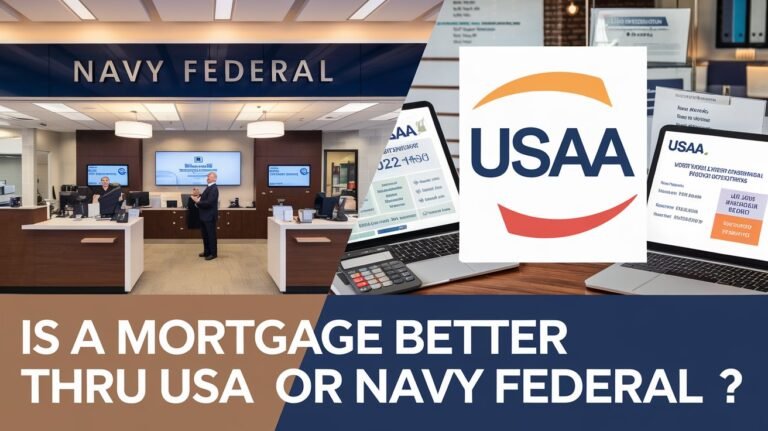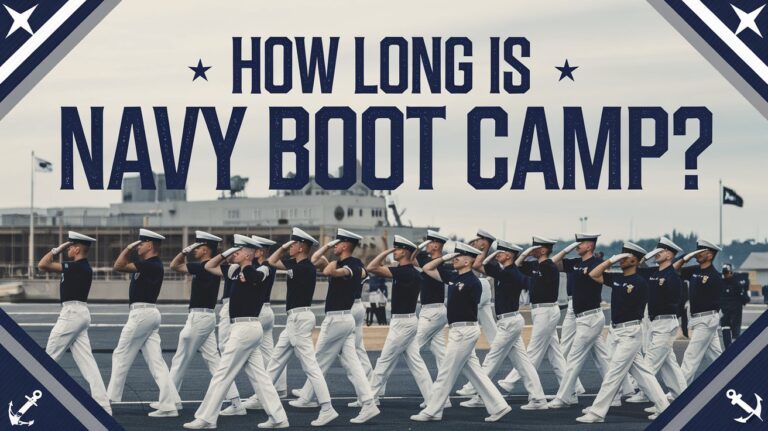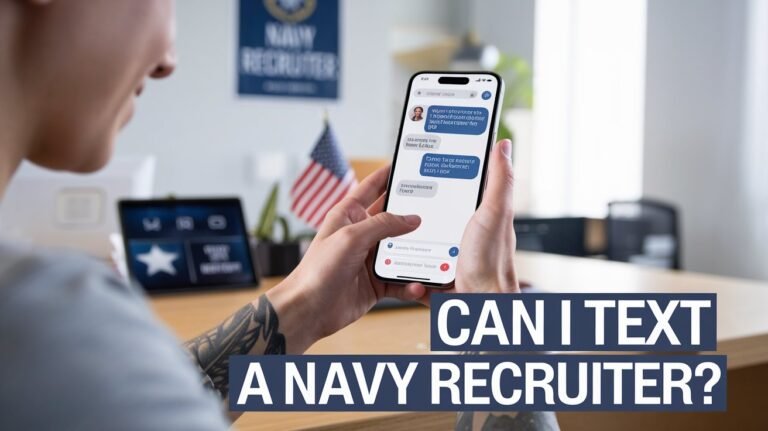Does Navy Pay For Grad School? Tuition & Benefits Info

The Navy has many ways to help its people get a graduate degree. This includes fellowship programs and tuition help. These options are meant to boost the Navy’s officers’ careers by giving them a chance to learn more.
Programs like the Federal Executive Fellows (FEF) Program and the Fleet Scholars Education Program (FSEP) are key. They help officers get a higher education and grow in their careers. This way, the Navy invests in its officers’ future.
Navy wants to make its officers better by funding their education. This is part of its plan to build leaders for today’s complex world. With choices like the Georgia Tech Research Institute (GTRI) Program and the Politico-Military Masters (PMM) Program, officers can pick what’s best for them. They get to grow their careers while the Navy supports them.
Navy Graduate Education Programs Overview
The Navy has different programs to support graduate education. These programs help personnel advance in their careers. They offer full-time study, part-time education, and distance learning options.
Full-time study lets personnel focus on their graduate degree. Part-time education benefits are for those balancing school with other duties. Distance learning programs are online, so you can study from anywhere.
Benefits of Each Program
- Full-time study: allows for focused attention on graduate degree, potentially leading to faster completion
- Part-time education: provides flexibility for those with other responsibilities, allowing for a balance between education and other obligations
- Distance learning: offers convenience and flexibility, allowing personnel to pursue their graduate degree from anywhere
Navy supports its personnel’s educational and career goals. These programs help them reach their full potential. This way, they can contribute to the Navy’s success.
| Program | Benefits |
|---|---|
| Full-time study | Focused attention on graduate degree, potentially leading to faster completion |
| Part-time education | Flexibility for those with other responsibilities, allowing for a balance between education and other obligations |
| Distance learning | Convenience and flexibility, allowing personnel to pursue their graduate degree from anywhere |
Does Navy Pay For Grad School: Program Details
The Navy supports personnel in getting their graduate degree through various programs. These include fellowships, tuition help, and other benefits. The Tuition Assistance Program is one way the Navy helps, covering a part of tuition costs for active duty and some reserve members.
Details on Navy graduate programs vary, but they offer many benefits. For instance, the Naval Postgraduate School (NPS) has programs like the Master of Systems Analysis. It’s a 24-month, part-time program with eight consecutive quarters. These programs aim to help personnel reach their educational goals while serving.
Some key benefits of Navy grad school funding and programs are:
- Financial help for tuition and fees
- Flexible scheduling for military duties
- Opportunities for career growth
- Access to graduate programs at the Naval Postgraduate School
The Navy’s graduate education programs provide many benefits. With funding and program details, personnel can reach their educational goals while serving their country.
Tuition Assistance Program Specifics
The Navy’s Tuition Assistance program helps personnel get their graduate degree. It focuses on tuition assistance and annual funding limits. To qualify, members must meet certain course requirements and service obligations.
Active-duty members can get up to 100% of college course costs covered. The maximum reimbursement is $250 per semester hour or $166.67 per quarter hour.
Eligible members can get 18 semester hours (or equivalent) of tuition assistance each fiscal year. They can take no more than two TA-funded courses at once. The total reimbursement is capped at $4,500 per fiscal year.
It’s crucial to know these program specifics. This way, personnel can use their benefits wisely and make smart education choices.
Some key details to consider include:
- Maximum funding limits: 16 semester hours, 24 quarter hours, or 240 clock hours per person
- Reimbursement rates: up to $250 per semester hour or $166.67 per quarter hour
- Annual funding limits: $4,500 per fiscal year
- Service obligations: enlisted sailors do not incur additional obligations, while officers must serve a minimum of two years following completion
Knowing these tuition assistance program specifics, Navy personnel can fully benefit. They can reach their educational goals.
| Course Type | Cost per Course |
|---|---|
| On-site undergraduate courses | $747 |
| Online undergraduate courses | $747 |
| On-site graduate courses | $822 |
| Online graduate courses | $981 |
GI Bill Benefits for Advanced Degrees
The GI Bill helps with advanced degrees, like graduate school. You need at least 90 days of active duty after September 11, 2001, to qualify. Veterans with a Purple Heart can get benefits after any service.
GI Bill benefits cover many graduate programs. It pays up to $27,120.05 a year for tuition at private schools. The amount you get depends on how long you served since September 10, 2001. Serving 24 months gets you 80% of the benefits.
Some key benefits of the GI Bill for advanced degrees include:
- Coverage of tuition and fees for graduate programs
- A monthly housing allowance based on the cost of living at the school location
- An annual book stipend of up to $1,000
- The ability to pursue dual degree programs or additional degrees after the first is earned
GI Bill benefits for advanced degrees are very helpful. They offer a chance to get a graduate degree and move up in your career. Knowing what you qualify for helps you plan your future.
Naval Postgraduate School Opportunities
The Naval Postgraduate School offers many degree programs. These programs help people get advanced knowledge and skills. This can greatly improve their career.
Applicants go through a semi-annual screening process. They need a certain Academic Profile Code (APC) to be considered. Some may ask for a waiver, but they need approval from NPS Admissions.
The school has programs like the Master of Systems Analysis (MSA). It lasts 24 months. Students take two courses each quarter for eight quarters.
Available Degree Programs
The Naval Postgraduate School has many degree programs. These include Master of Systems Analysis, Security Studies, and more. They are made for military and civilian students, helping them reach their career goals.
Admission Requirements
To get into the Naval Postgraduate School, you need to meet certain requirements. This includes a minimum GPA and APC score. The school also looks at work experience and letters of recommendation.
Career Impact
Going to the Naval Postgraduate School can really boost your career. It gives you advanced knowledge and skills. This can lead to better job opportunities and higher salaries.
Advanced Education Voucher Program
The Advanced Education Voucher Program helps personnel pay for their graduate studies. It offers up to $20,000 each year, with a total of $40,000 available. You can use this money for up to 24 months after you accept your offer.
To qualify, you need to meet certain service time requirements. For example, E7s must have 20 years or less of service. E8s need 23 years or less. The program supports Navy-relevant master’s degrees in fields like:
- Emergency and Disaster Management
- Human Resources
- Project Management
- Engineering and Technology
Here’s a quick summary of the program’s main points:
| Feature | Description |
|---|---|
| Maximum Funding | Up to $20,000 per fiscal year |
| Total Funding Limit | $40,000 |
| Duration | 24 months |
| Service Obligation | Three times the number of months of education completed or three years, whichever is less |
This program is competitive, with only seven spots available. If you’re interested, you must apply on time. You’ll also need endorsements from your Commanding Officer and Command Master Chief.
Financial Benefits and Stipends
The Navy has many financial benefits and stipends for those getting a graduate degree. It’s important to know about these to get the most support. Benefits like housing allowances, book stipends, and more help people reach their academic goals.
Some key financial benefits and stipends from the Navy include:
- Housing allowances: The Navy gives a monthly housing stipend like an E-5 with dependents gets.
- Book stipends: Up to $1,000 a year is given for books and supplies.
- Additional financial support: The Navy Tuition Assistance program covers up to 100% of course costs at accredited schools.
Housing Allowances
The housing allowance is a big help for living expenses while getting a degree. It’s based on the area’s cost of living. It’s the same as the Basic Allowance for Housing (BAH) for an E-5 with dependents.
Book Stipends
The book stipend helps with the cost of books and supplies. It’s up to $1,000 a year. You can use it for books, equipment, and other school materials.
Additional Financial Support
The Navy also offers other financial help. The Navy Tuition Assistance program, for example, covers up to 100% of course costs at accredited schools. This helps with tuition, fees, and other school expenses.
| Financial Benefit | Amount |
|---|---|
| Housing Allowance | Equivalent to BAH for E-5 with dependents |
| Book Stipend | Up to $1,000 per academic year |
| Navy Tuition Assistance | Up to 100% of course costs |
Application Procedures and Deadlines
To apply for the Navy’s graduate education programs, knowing the application steps and deadlines is key. The selection is tough, and hitting the deadlines is vital. PhD programs have annual application periods through the PMP Board and Doctoral Studies Board.
To qualify for the Navy’s graduate education program, you need to excel professionally and academically. You’ll need to submit your transcripts, letters of recommendation, and a personal statement. Here are important things to remember:
- Application procedures: Submit applications through the designated boards
- Deadlines: Annual deadlines for PhD programs
- Required documentation: Transcripts, letters of recommendation, and personal statement
- Selection process: Competitive selection based on eligibility criteria
Selection process looks at your academic and professional background. It also considers your potential for promotion. If you want a second funded degree, you’ll need to ask for a waiver. This involves the NPS Director of Programs and your detailer/community.
| Program | Application Procedure | Deadline |
|---|---|---|
| PhD Programs | PMP Board and Doctoral Studies Board | Annual |
| Graduate Education Program | Designated application portal | Varying deadlines |
Remember, getting a waiver for a second funded degree isn’t automatic. Each case is looked at individually. By knowing the application steps, deadlines, and what you need to submit, you can boost your chances of getting into the program.
Service Commitments and Obligations
When you go for graduate education through the Navy, knowing the service commitments is key. You’ll have to agree to serve for a certain time. This time can change based on the program and your role.
The service you’ll do can be active duty, reserve, or both. The time you’ll serve can be from 4 to 8 years. For instance, Naval ROTC scholarship winners must serve for 5 years. OCS graduates have to serve for 4 years.
| Program | Service Commitment |
|---|---|
| Naval ROTC Scholarship | 5 years active duty |
| Officer Candidate School (OCS) | 4 years active duty |
| Graduates of the U.S. Military Academy, Naval Academy, or Air Force Academy | Minimum of 5 years active duty |
It’s important to know the service commitments before starting a graduate program with the Navy. This way, you can plan your education and career well. You’ll make sure you fulfill your service duties while achieving your academic and professional goals.
Career Advancement Opportunities
Going for graduate education opens doors to many career chances in the Navy. This includes better job roles and chances for promotion. It boosts your skills and knowledge, making you stand out for higher positions.
Some key benefits of graduate education for career growth are:
- More chances for promotion, as higher degrees are often needed for top jobs
- Access to special roles, like in research or leadership
- Better skills and knowledge, leading to more job satisfaction and career fulfillment
The Navy also supports graduate education with programs like Tuition Assistance and the Advanced Degree Program. These help with costs and offer benefits to reach educational goals and move up in careers.
Graduate education is crucial for career growth in the Navy. It brings many benefits and chances. By investing in education, you can reach new heights in your career and meet your professional dreams.
Program Success Stories
The Navy’s graduate education programs have a strong track record. They have helped many Navy personnel in their careers and personal lives. These programs let Navy personnel get advanced degrees, improving their skills and knowledge.
Many have benefited from these programs. They offer both full-time and part-time study. The Naval Postgraduate School is one option, focusing on defense education. Navy personnel can also study at civilian schools with Tuition Assistance.
Some notable examples include:
- Officers who got post-graduate degrees and became leaders
- Navy personnel who got graduate degrees and found jobs in the private sector
- People who grew thanks to the Navy’s education programs and made big contributions
These stories show how valuable the Navy’s education programs are. They support career growth and personal development. By investing in education, the Navy is preparing for the future and strengthening national defense.
Last Thoughts
The U.S. Navy offers many chances for service members to grow their education and careers. They have tuition help, the GI Bill, and special programs like the Naval Postgraduate School. These options help support your professional growth.
If you want a master’s degree, a doctoral program, or specialized training, the Navy has your back. They offer financial support, flexible learning, and skills that are in demand. Now is the best time to see how the Navy can boost your career.
Start by learning more about Navy graduate education programs today. Invest in your future. Let the Navy help you reach your academic and professional goals.
Answering Your Queries
What are the different Navy graduate education programs available?
The Navy has many graduate education programs. You can study full-time, part-time, or even online.
What are the details of the Navy’s graduate education programs?
Navy offers fellowships, tuition help, and more. We’ll cover the types of degrees, how to apply, and who can apply.
What is the Tuition Assistance Program, and what are its specifics?
The Tuition Assistance Program helps Navy personnel get their graduate degree. We’ll talk about how much money you can get, what courses are covered, and what you owe the Navy.
How does the GI Bill provide benefits for advanced degrees?
The GI Bill helps Navy personnel get their graduate degree. We’ll explain what degrees it covers, how to apply, and who’s eligible.
What opportunities does the Naval Postgraduate School offer?
Naval Postgraduate School offers top-notch degree programs. We’ll discuss the programs, how to get in, and how it can boost your career.
What is the Advanced Education Voucher Program, and how can personnel benefit from it?
The Advanced Education Voucher Program helps with graduate degree costs. We’ll cover who’s eligible, how to apply, and what degrees are included.
What financial benefits and stipends are available to support personnel in pursuing their graduate degree?
The Navy offers financial help and stipends for graduate studies. This includes housing, book money, and more.
What are the application procedures and deadlines for Navy graduate education programs?
We’ll go over how to apply and when to do it for Navy graduate programs. This includes what documents you need and how you’re chosen.
What are the service commitments and obligations associated with Navy graduate education benefits?
Getting Navy graduate education benefits means you have to serve. We’ll talk about what that service looks like and how long you’ll have to serve.
How can pursuing graduate education lead to career advancement opportunities in the Navy?
Graduate education can open doors in the Navy. We’ll look at how it can lead to promotions and specialized roles.
Are there any success stories of Navy personnel who have benefited from graduate education programs?
Yes, many Navy personnel have seen their careers take off with graduate education. We’ll share their stories and how it’s helped them.






